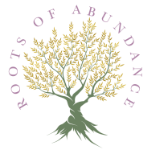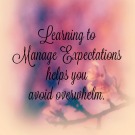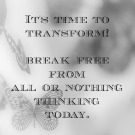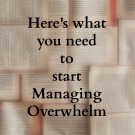The following is a lesson from the e-course You Are Not Your Job: Recovering Your Sense of Identity.
Energy
Energy – mental, physical, and emotional – plays a crucial role in how we not only view ourselves but also with how we identify with others, and with our work. Every day you gather and expend energy. Some days you may break even but others, you may end up expending more than you gain, leaving you depleted, and exhausted. Today I want you to start examining energy (or lack of) and how it impacts you.
Introvert or Extrovert? Which one are you?
Common personality tests include introversion or extroversion as part of their equation, with I for Introvert and E for extrovert. If you’ve not taken a personality test such as Myers Briggs, that’s OK – you won’t really need it to figure out which term applies to you.
Each of us is capable of being, in some way or another, both introverted and extroverted but in truth one usually predominates. The critical question to ask yourself is – over the long term, how do you gain energy? How do you recharge your battery, so to speak?
As an introvert I know I need periods of alone time in a quiet place in order to recharge myself. I consider myself a more “social introvert” – and feel fairly at ease in social gatherings (as long as there aren’t too many people) but over the long haul I expend much more energy when I’m around a group of people and usually end up rather tired after the event is over. Extroverts on the other hand thrive on being with others; working alone drains them and they need to engage with others in order to recharge. Extroverts may benefit from periods of alone time but to keep their energy levels up, they need to get up and go seek out interactions with others. I once had a co-worker who was clearly an extrovert; he did fantastic work but he spent about 15 minutes out of every hour talking with others. This energized him and allowed him to stay engaged throughout the day.
Using the characteristics below, which category do you mostly identify with?
Introvert Characteristics
Being around lots of people drains you
You enjoy solitude (not all the time but it does recharge you)
Small group of close friends
Overwhelmed or unfocused by too much stimulation
Others may find you quiet and a little bit tough to get to know
Extrovert Characteristics
Enjoys group socializing and likes to talk
Several broad interests
Solves problems by talking about them
Others find you friendly and approachable
Being alone for long periods of time can feel isolating
Energy in Your Personal Life
Take a moment and look at your hobbies and try to tie introversion or extroversion to things you do when you’re not at work.
- What do you do for fun that helps you gain energy? Even if it’s physically demanding, you may come away “energized” on other levels.
- Think about how your surroundings at home impact your energy. Are there changes you can make (even if the changes are small) that could give you just a bit more energy such as straightening or organizing a space? Note down those changes.
- How satisfied are you with your ability to manage your energy gains and drains in your personal life? If you’re satisfied, great. If not, just note down the things you might want to work toward changing (without worrying about how you’ll go about making those changes).
Energy at Work
Now it’s time to focus on energy at work.
- What activities give you energy? Notice your surroundings. Are you working alone? With a team? What is the vibe of your work environment (quiet, noisy, hectic, up and down) and how does it energize you? Think about these activities from the standpoint of how they impact you mentally, emotionally and physically.
- What activities drain you? Again, notice your surroundings. Why do you find certain activities draining? Think about these activities from the standpoint of how they impact you mentally, emotionally and physically.
- In what ways does your work provide you a balance of energy gains and drains throughout the day? Notice if you have more drains than gains and jot down how that makes you feel.
- Finally, in what ways does your job support your identity as mostly introverted or mostly extroverted? In what ways could you use more support or a bit of a change?
To close for today, take a moment to jot down your conclusions about energy and your work. Is your job a good fit with how you gain and expend energy? Maybe the job started out as a good fit and now your role has shifted such that it’s no longer quite right for you, or maybe it’s gotten better over time. Either way, because energy impacts every aspect of your life, it’s important to understand how you gain it and spend it – both in your personal and professional lives.






